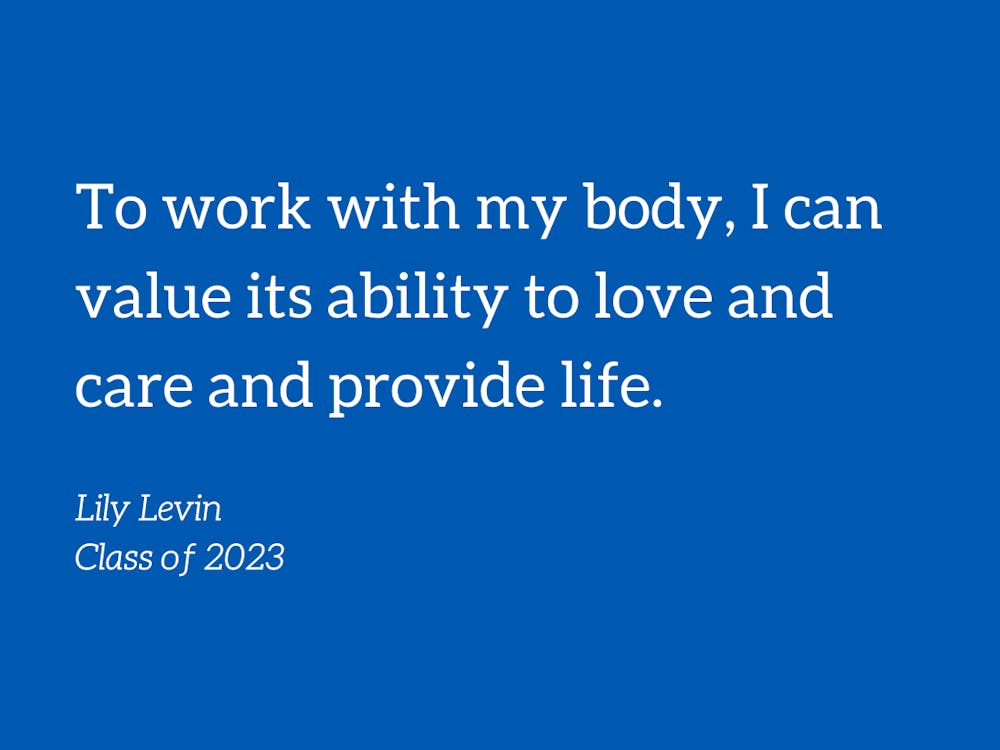For years, my life has been dictated by a resounding sleepiness. I’ll peel away my covers while fighting morning headaches and crushing fatigue. Afternoon brings sleep attacks, absentmindedness, cloudiness; I chug cup after cup of coffee to wash away the fog that has obstructed my vision. Evening is a bit better, although I’ll probably need another shot of espresso.
For a while, I disguised the humiliation that accompanied bones-deep exhaustion through humor. I sent my falling-asleep notes to friends. I tallied the number of consecutive days during which I would be called out for dozing during class.
By the end of last semester, my body had experienced enough of this antagonism; I’d shut down more and more often from chronic fatigue. But all college students are tired. I, like so many of my peers, work myself into the ground. I trade REM cycles for extra time with friends or late-night studying. So, a few months ago, I made a steadfast commitment to myself: I would get enough sleep.
I stuck to this newfound goal, wanting to treat my mind with the respect and care it needed to function well in a high-pressure environment. I was quickly averaging eight or nine hours per night. I became fixated on my routine. Some days, I was glued to my bed. Other days, I’d nap for hours. And yet, I felt more exhausted than ever.
I finally convinced myself to see a sleep specialist about a month ago. Her words—there might be something wrong with me—changed my life. Since my sophomore year of high school, I’d minimized the potential of a sleep disorder by blaming myself for my lack of wakefulness. Sleep deprivation is normalized at Duke and so many other universities. I measured my dysfunctional tiredness through the lens of productivity. Why couldn’t I be like my peers, who would average four hours of sleep per night and maintain consciousness the entire day? Why couldn’t I finish my homework without falling asleep at my desk? I had believed I was inadequate, shameful.
On Sunday, I was diagnosed with a significant amount of Obstructive Sleep Apnea, during a highly-stressful overnight study. These results would explain my tiredness, but I didn’t feel the relief I thought I might immediately experience with a label.
Every waking moment, I am still at war with my body. At war to perform basic functions, to leave my room, to maintain significant and meaningful relationships. My physical being is dissociative, relentless in its drowning exhaustion.
It’s hard to love my body when I feel like it is constantly fighting against my wellbeing. In a previous column, I mentioned the importance of body neutrality, or centering what our bodies can do for us, rather than how they appear. But what if our bodies aren’t performing what we perceive as the bare minimum? So many of us are injured, ill, in pain, living with a chronic disorder or disability. So many of us blame ourselves for what we are not able to control. So many of us find it difficult to feel grateful for our physical beings when we constantly feel that we must dissociate to survive.
Nonetheless, some of the demands I place on my body are unhealthy, disordered sleep or not. I compare myself constantly to those who can effortlessly pull all-nighters; but this skill is not one any of us should possess. In fact, it was only due to the forceful slowing-down of COVID—a pandemic that has resulted in mass death and destruction—that I was able to accomplish my lofty goal of eight-to-nine-hours of sleep per night. It was only because of a global catastrophe that I was granted some amount of self-reflection, that I realized maybe what I was experiencing was not normal. The irony is callous and cruel.
I know that I am incredibly lucky. It’s a long road ahead, but I have opportunities to work alongside my body. I also know that striving for perfection, whether it be mental or physical, is an aspect of white supremacy culture, and dehumanizes anyone who does not have an able-bodied or normative experience. I owe much of my thinking to Black disabled organizers who have taught me that the notion of disability is constructed by a capitalist society that sees “land and human as components of profit.” (This website provides informational resources and ways to support Disability Organizers monetarily.) When we are only valued for what we can produce, of course our basic needs are not met—of course we are positioned against our bodies. Learning to reunite with our bodies means focusing on the inherent worth in everyone; it means having our own autonomy to decide our expressions of sexuality, labor and health. To work with my body, I can advocate against the narrative pushed by capitalism that my productivity is my worth. To work with my body, I can value its ability to love and care and provide life.
Finding ways to be grounded within myself can also foster appreciation for my body and surroundings. Through Indigenous understandings of gratitude, such as those spoken by Robin Wall Kimmerer, a Citizen of the Potawatomi Nation, I can give thanks to my surroundings while offering reciprocity. The water feels cold on my fingertips. My back feels sheltered below this tree. My legs feel rejuvenated from walking with my close friends. In return, I’ll interrupt systems of white supremacy that continue to demolish this earth. In return, I’ll show up for those around me. In return, I’ll give others space to grieve.
This exhaustion sometimes feels like an uphill battle in which I arrive at the summit breathless and weakened. But right now, my feet feel grounded from following the steps of individuals who have battled so much more. In return, I’ll let myself rest.
Lily Levin is a Trinity sophomore. Her column runs on alternate Thursdays.
Get The Chronicle straight to your inbox
Signup for our weekly newsletter. Cancel at any time.

